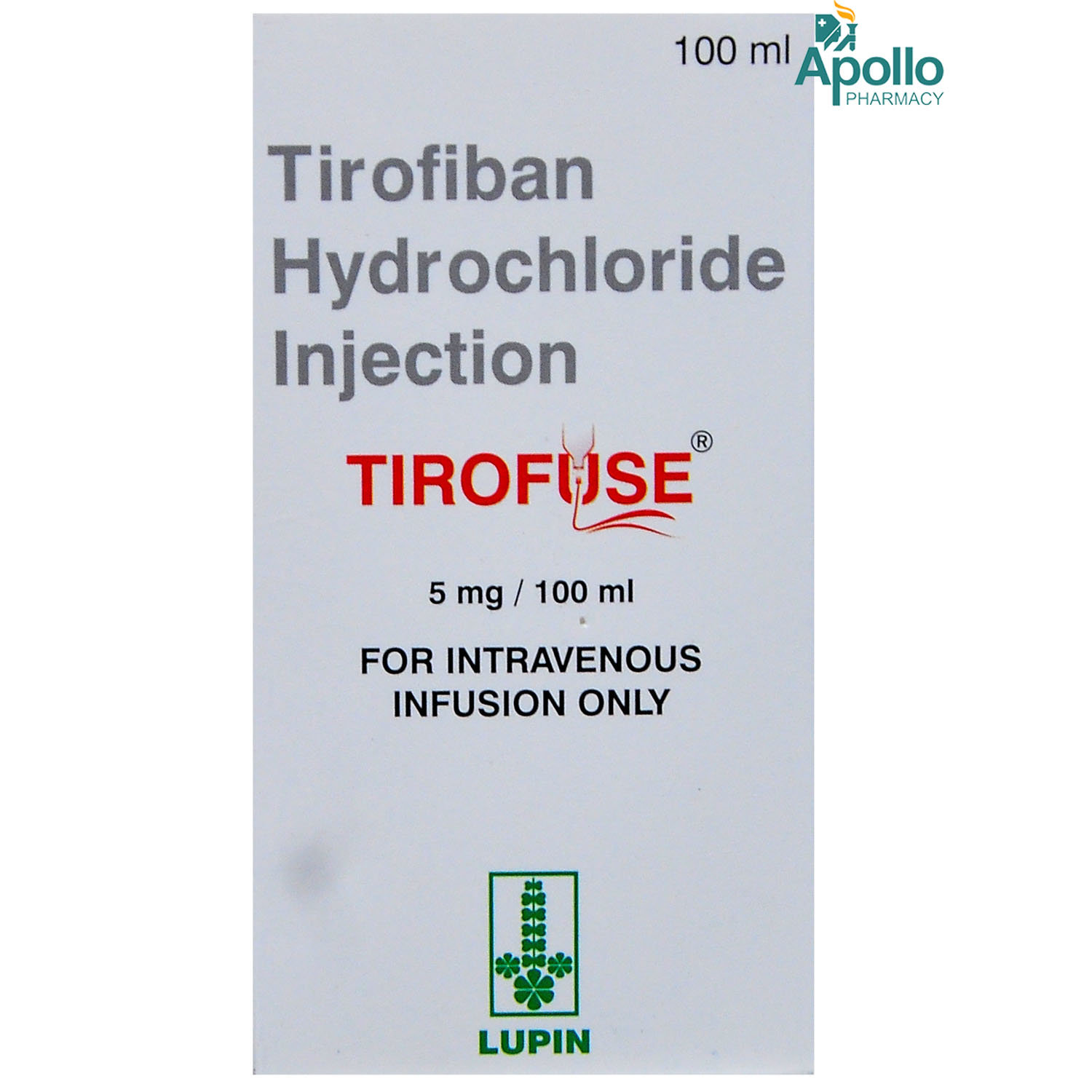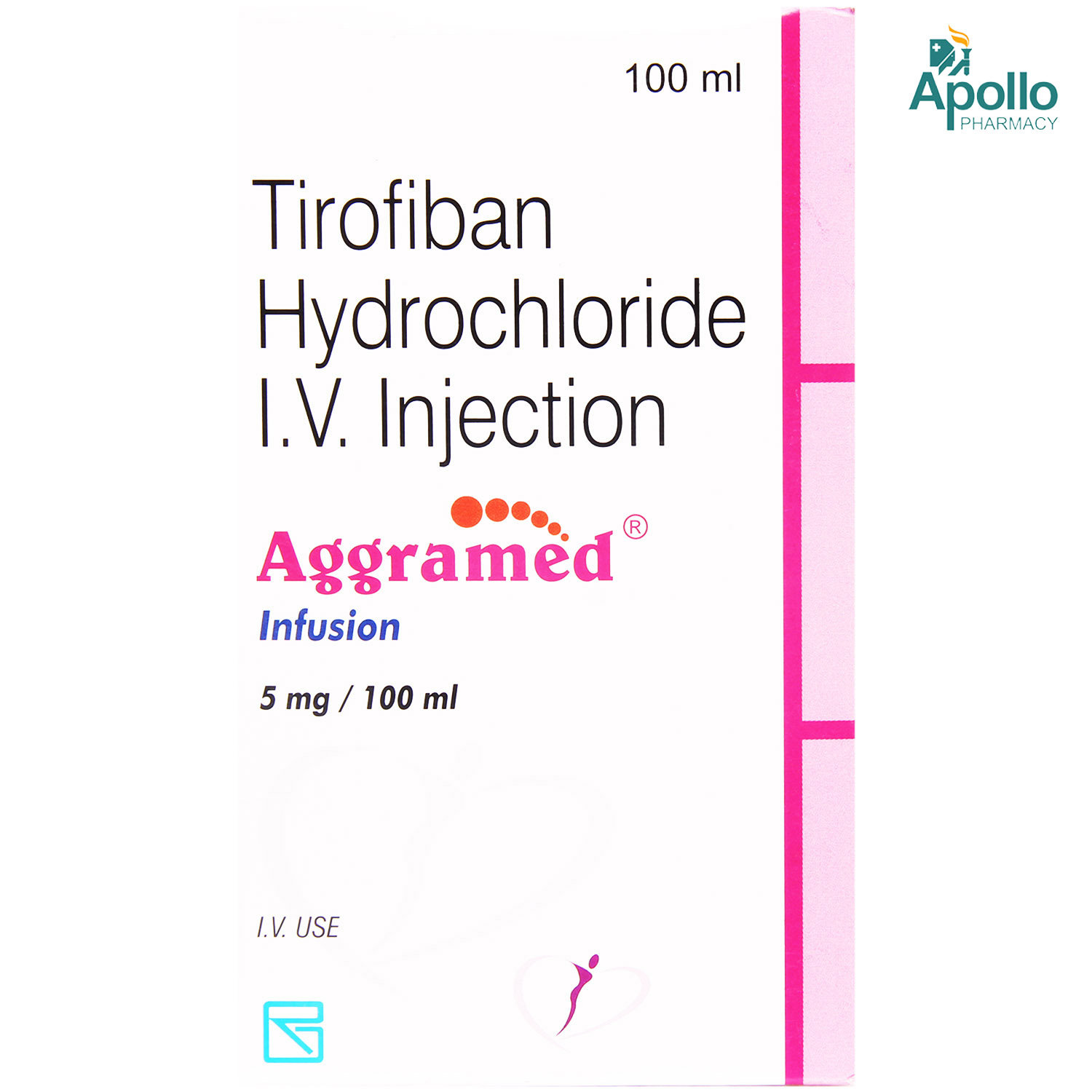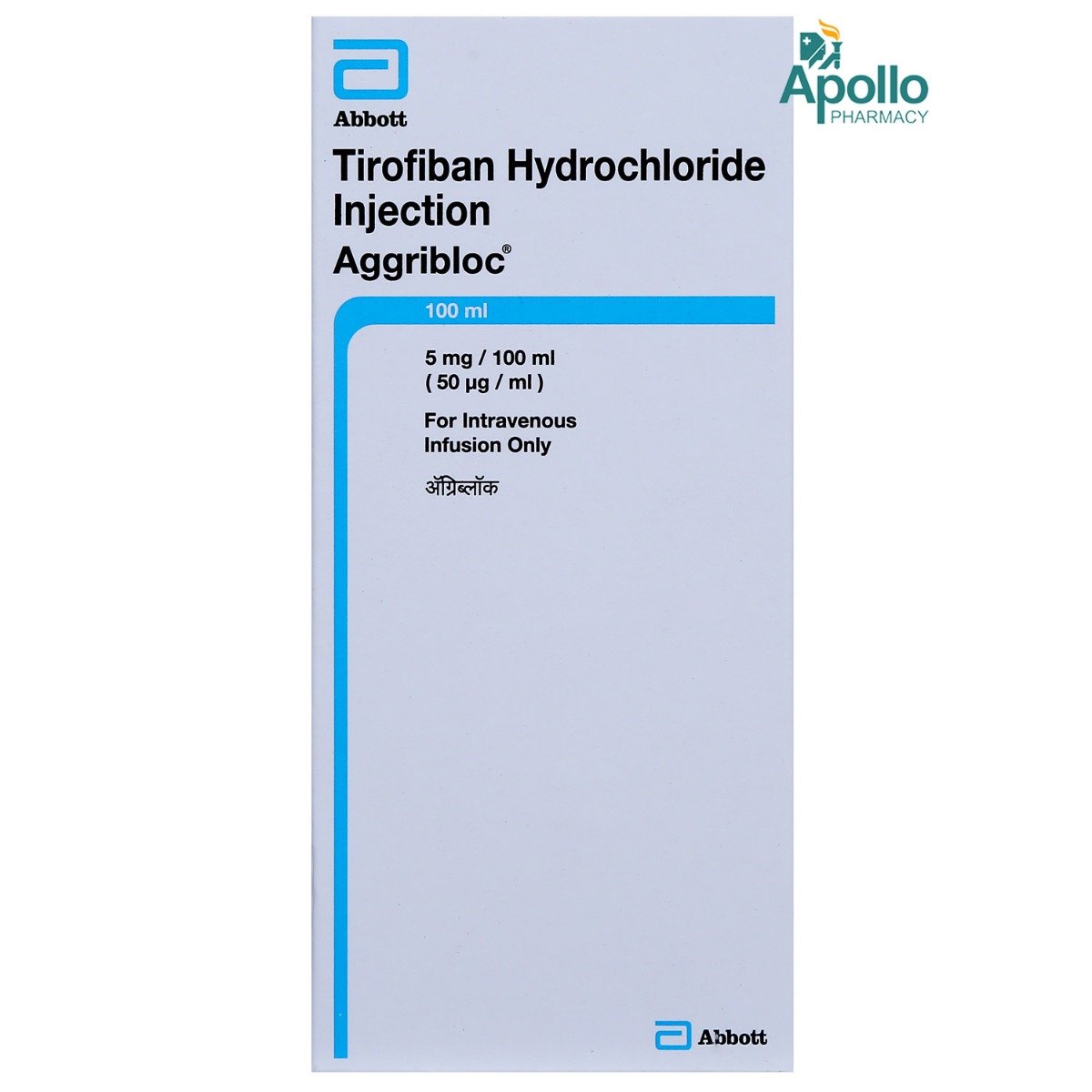- Home
- Aggrifib Injection
Aggrifib Injection Substitute
Aggrifib Injection Substitute
Medicine Composition:
TIROFIBAN-5MGAll Substitutes & Brand Comparisons
RX
TIROFUSE INJECTION 100ML
Lupin Ltd
₹4790.5
(₹39.28/ 1ml)
11% CHEAPERRX
TIROBAN 5MG INJECTION 100ML
United Biotech Pvt Ltd
₹6555
(₹53.75/ 1ml)
20% COSTLIERRX
Fibroban 5Mg/100Ml Inj
Cadila Healthcare Ltd
₹7889
(₹64.69/ 1ml)
44% COSTLIERRX
Aggramed 5mg Infusion 100 ml
Cadila Healthcare Ltd
₹9317
(₹76.4/ 1ml)
71% COSTLIERRX
AGGRIBLOC 5MG I.V INJECTION 100ML
Nicholas Piramal India Ltd
₹9516
(₹78.03/ 1ml)
74% COSTLIERRX
Out of StockRofiplag Injection 100 ml
Alkem Laboratories Ltd
₹11500
(₹115.0/ 1ml)
157% COSTLIER

When Should You Consider Switching from Aggrifib Injection?
Patients may explore substitutes in the following scenarios:
- High monthly cost of Aggrifib Injection
- Non-availability in local pharmacies
- Generic recommendation by a doctor
- Side effects or better tolerability with alternatives
What to Know Before Switching
Before you switch from Aggrifib Injection to another medicine, here are some important points to keep in mind:
Same salt, different brands:
Most substitutes contain the same active ingredient - TIROFIBAN-5MG, but the fillers, coating, or manufacturing quality may vary slightly.
Consult your doctor first:
Even if the salt is the same, your doctor can confirm if the substitute is right for your condition, dosage, and health history.
Watch out for allergies or reactions:
Some people may react differently to certain brands due to inactive ingredients. If you notice any side effects, inform your doctor immediately.
Price ≠ effectiveness:
A lower-priced substitute doesn't mean it's less effective. Many generic medicines work just as well as branded ones.
Check the dosage form and strength:
Always match the substitute’s strength (e.g., 5mg, 10mg) and form (tablet, capsule, syrup) with what your doctor prescribed.
Uses
Aggrifib Injection is used in the prevention of blood clots, heart attack, and chest pain. The detailed uses of Aggrifib Injection are as follows:
- Prevention of Blood Clots: Aggrifib Injection prevents platelets from aggregating and forming blood clots in the coronary arteries, reducing the risk of thrombotic events.
- Prevention of Heart Attack: By inhibiting platelet aggregation, Aggrifib Injection reduces the risk of myocardial infarction (heart attack) in patients with acute coronary syndromes.
- Management of Chest Pain: Aggrifib Injection helps to manage chest pain associated with acute coronary syndromes by preventing further platelet aggregation and clot formation, thereby reducing the risk of cardiac ischemic events.
Medicinal Benefits
Aggrifib Injection contains Tirofiban, an antiplatelet which prevents platelets (blood cells) from sticking together to form blood clots. Thus, it is used to prevent blood clots. Also, it helps blood flow to the heart and prevents heart attack and chest pain. Additionally, it may be used in patients whose heart vessels are dilated with a balloon (percutaneous coronary intervention or PCI). It is intended for use with unfractionated heparin and aspirin.
FAQs
The substitutes of Aggrifib Injection contain the same active salt(s) - TIROFIBAN-5MG. However, they may differ in price, manufacturing quality, and inactive ingredients. Speak to your doctor to find a suitable option.
Switching to a generic substitute medicine in the place of Aggrifib Injection is often possible if it has the same salt, strength, and dosage form. But always check with your doctor before making any changes to your medication.
Generics versions of Aggrifib Injection are typically more affordable because they don’t include the original brand's research, development, and marketing costs. They contain the same active ingredient and are approved for safety and effectiveness.
Most people don’t notice any difference. However, some may react to different fillers or coatings. If you notice any unusual symptoms after switching, consult your doctor.
Make sure the new medicine has the same active salt, strength, dosage form. Always confirm the change with your doctor or pharmacist.
Substitutes of Aggrifib Injection meet the same safety and efficacy standards as Aggrifib Injection, but small differences in absorption or formulation can exist. A doctor can help you choose the right one for your needs.
Yes. Substitutes of Aggrifib Injection may vary in color, size, or shape due to differences in manufacturing and branding, but this does not affect how they work.
Yes, it’s generally safe to switch between multiple substitutes of Aggrifib Injection if they have the same salt and strength. However, always inform your doctor so they can monitor how your body responds.
Yes, many people safely use substitutes of Aggrifib Injection for long-term treatment. Just ensure it’s done under medical supervision.
If your symptoms stay under control or lab results remain stable, the substitute for Aggrifib Injection is likely working well. Regular follow-ups with your doctor are important.
Absolutely. Even with the same salt, small differences can affect how your body responds when switching from Aggrifib Injection to its substitute. Always consult your doctor before switching.
Aggrifib Injection is used to prevent blood clots, heart attack and chest pain.
Aggrifib Injection contains Tirofiban, a platelet aggregation inhibitor which works by preventing platelets (blood cells) from sticking together to form blood clots. Thus, it prevents blood clot formation.
Aggrifib Injection is not recommended for patients with severe liver disease. Therefore, if you have any liver disorder, inform your doctor before receiving Aggrifib Injection.
Yes, Aggrifib Injection may cause bleeding. If you notice blood in urine or stool or coughing up blood, please inform your doctor immediately, as these might be signs of internal bleeding.
While taking Aggrifib Injection, avoid medications such as NSAIDs (aspirin, ibuprofen), anticoagulants (heparin, warfarin), thrombolytic agents (streptokinase), other antiplatelet medicines (clopidogrel), and SSRIs (citalopram), as they may interact with Aggrifib Injection and cause negative complications. Always inform your doctor about your medication and health history for personalized guidance.
Aggrifib Injection is administered through an intravenous (IV) infusion by a healthcare professional.
You should avoid consuming alcohol while on Aggrifib Injection since it may raise the risk of bleeding in the stomach or intestines.
Aggrifib Injection gets to work quickly, and you may start feeling better within a few hours. As the medication rapidly prevents blood clots, you'll be on the road to recovery in no time. Follow your doctor's instructions and complete the full treatment course to ensure maximum benefits and a speedy return to health.
The common side effects of the Aggrifib Injection may include bleeding under the skin at the site of injection or into a muscle, causing swelling, bleeding after surgery, invisible blood in stool or urine, headache, or feeling sick. Most of these side effects of Aggrifib Injection do not require medical attention and gradually resolve over time. However, if the side effects persist or worsen, please consult your doctor.





